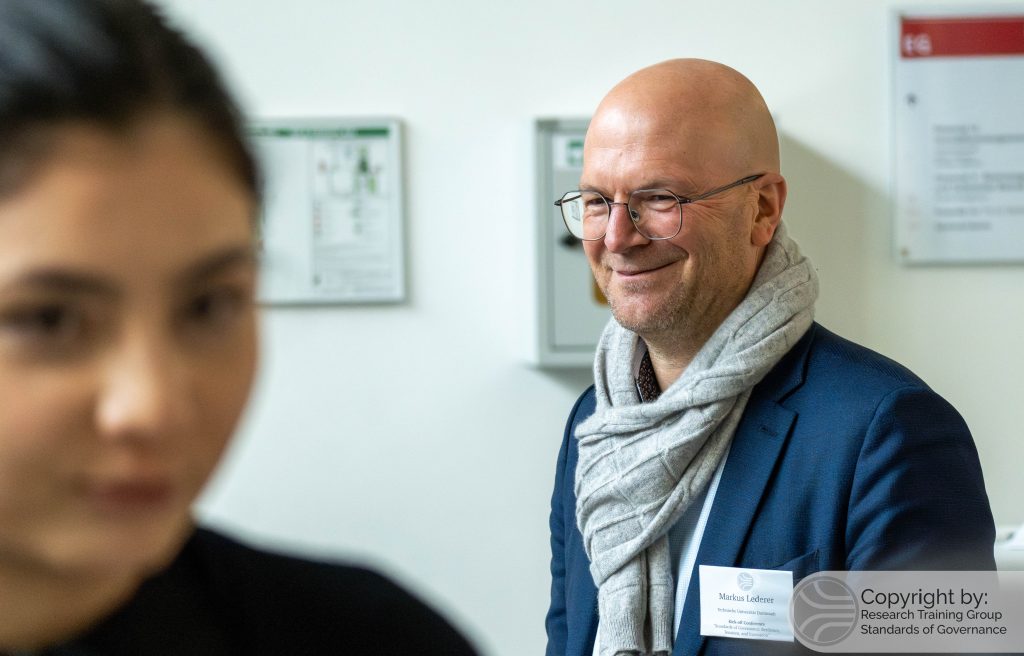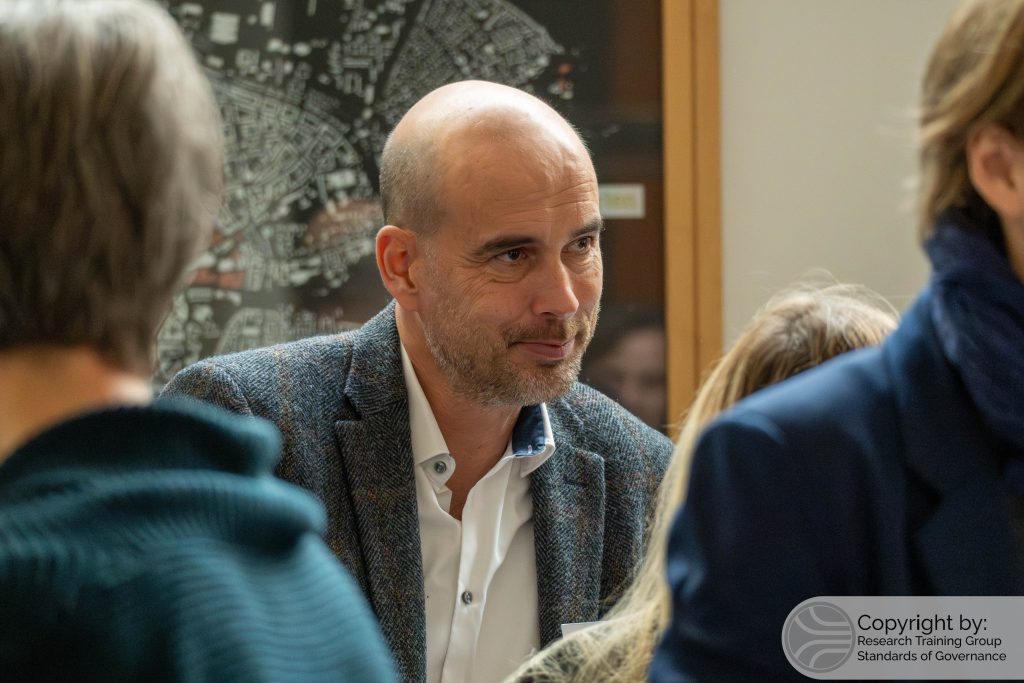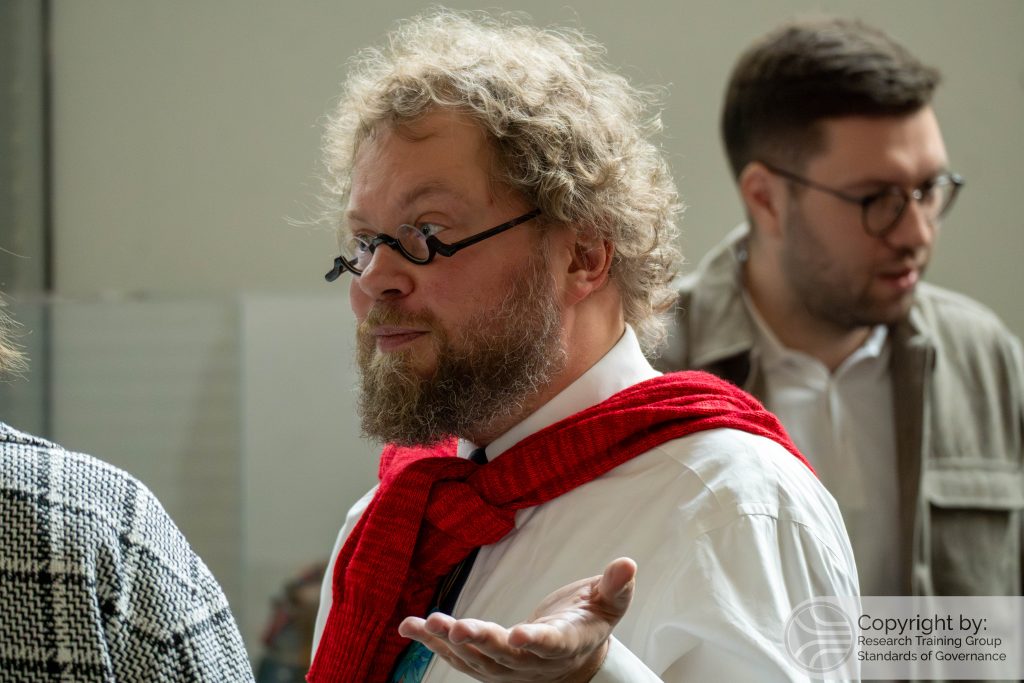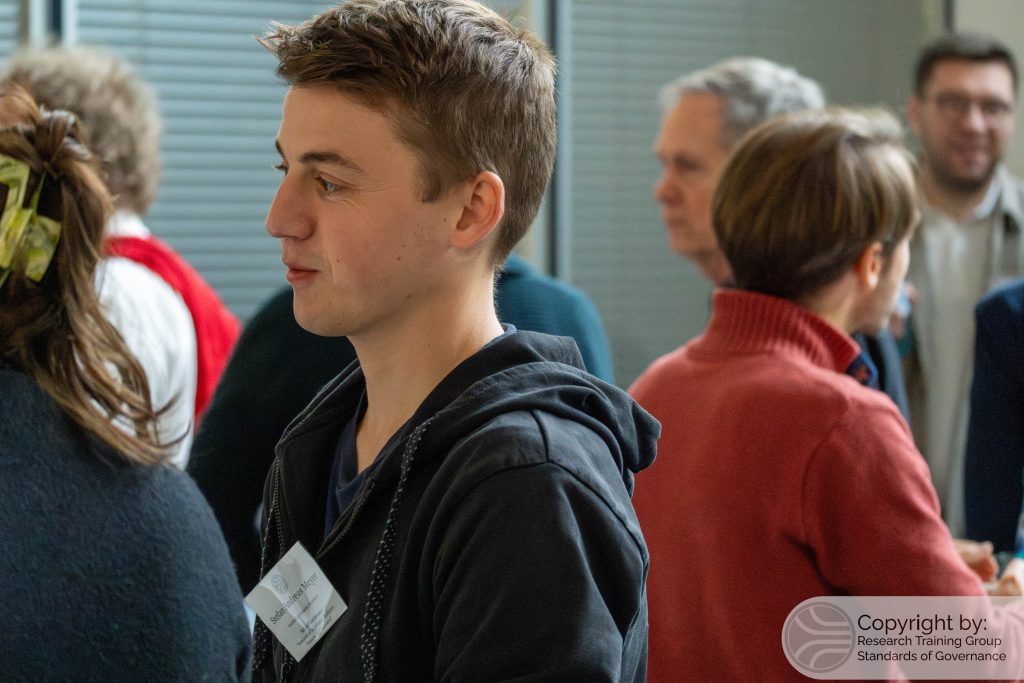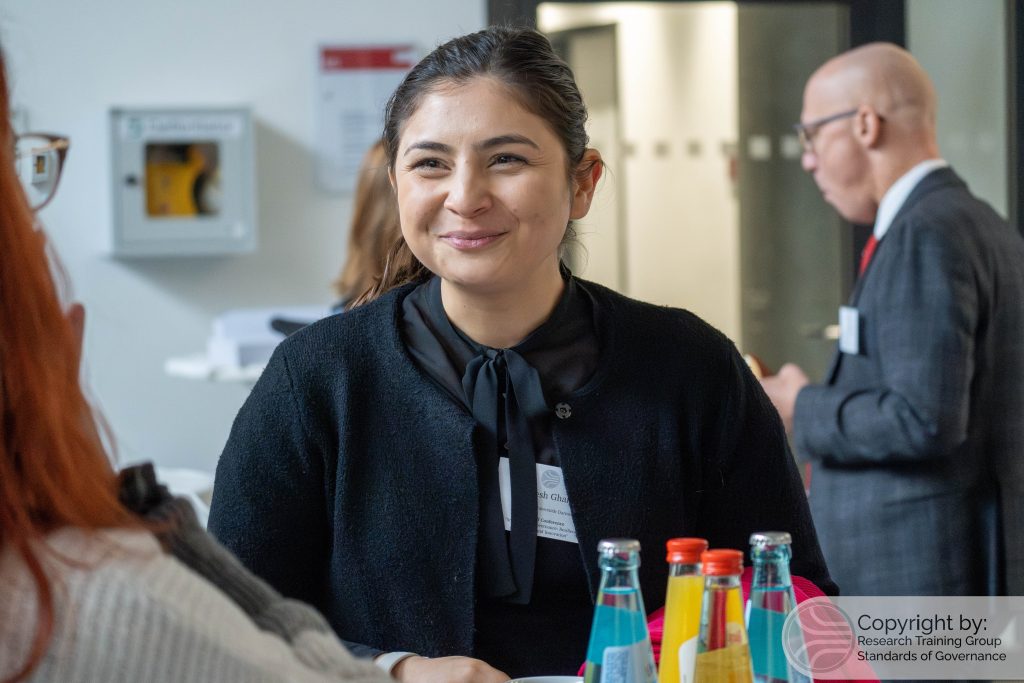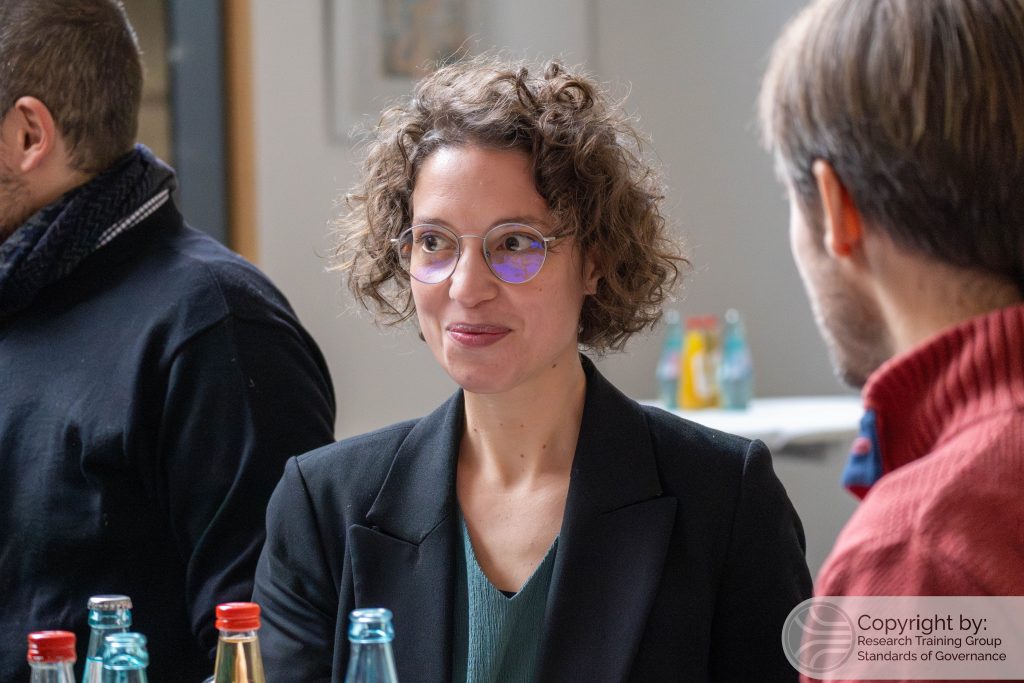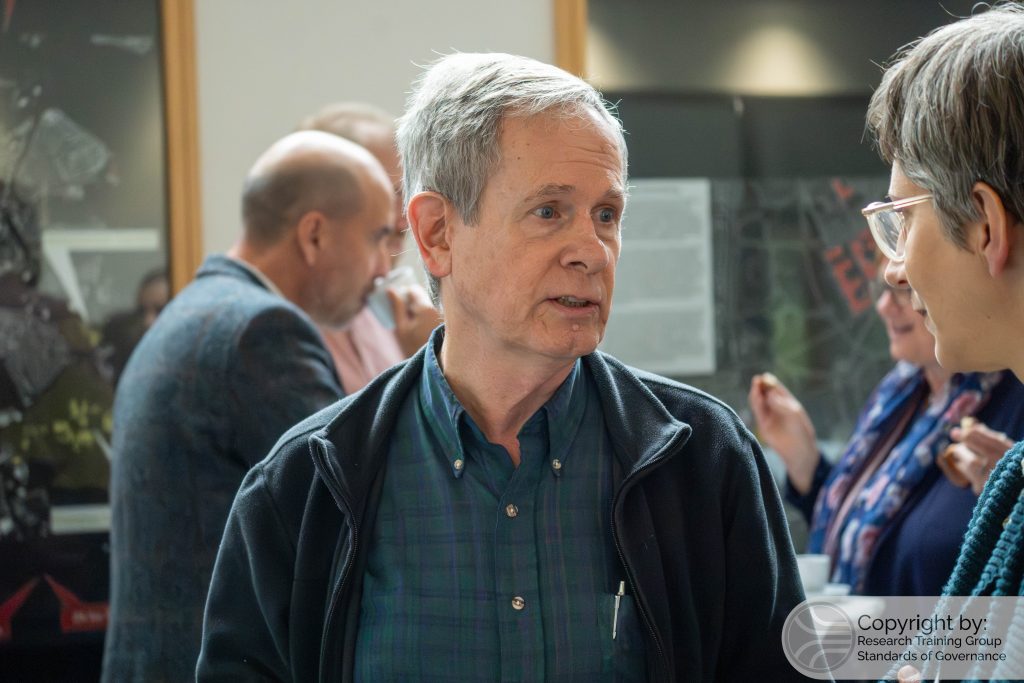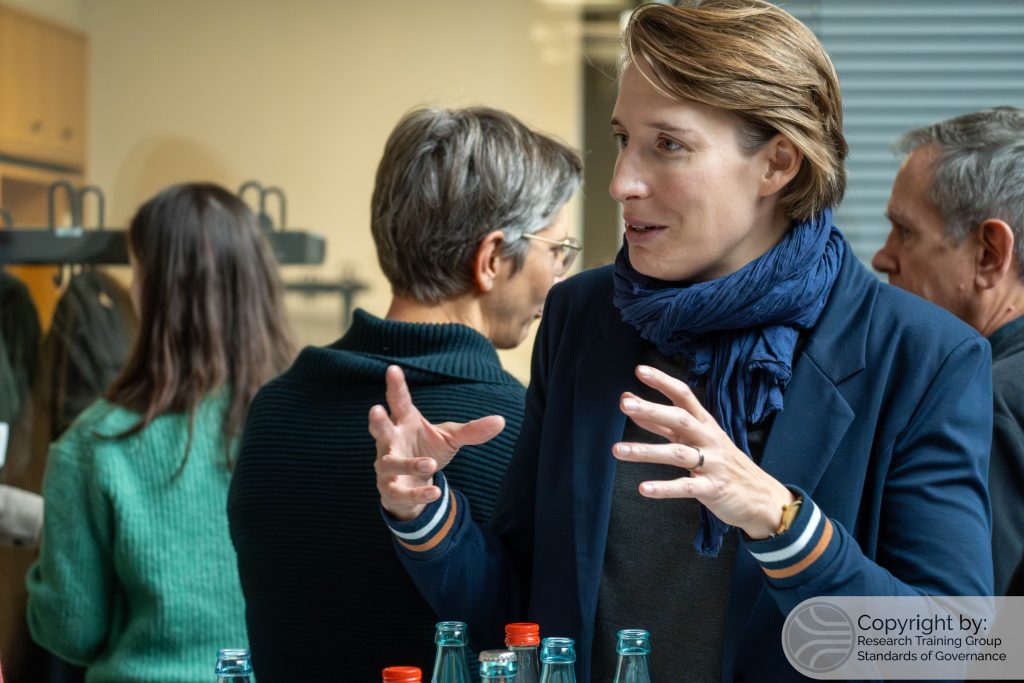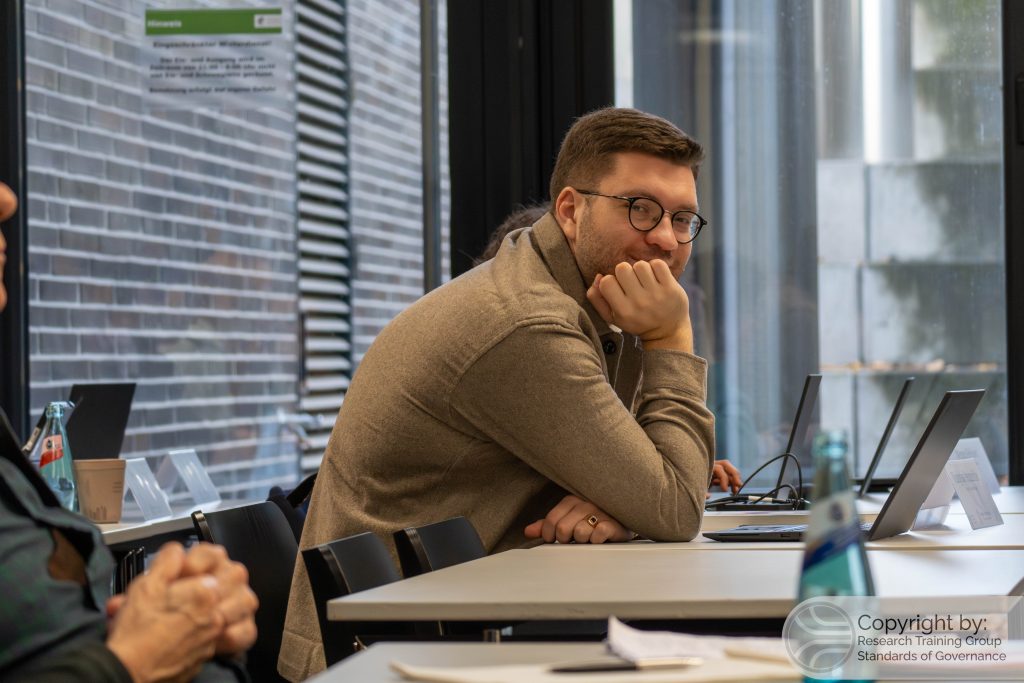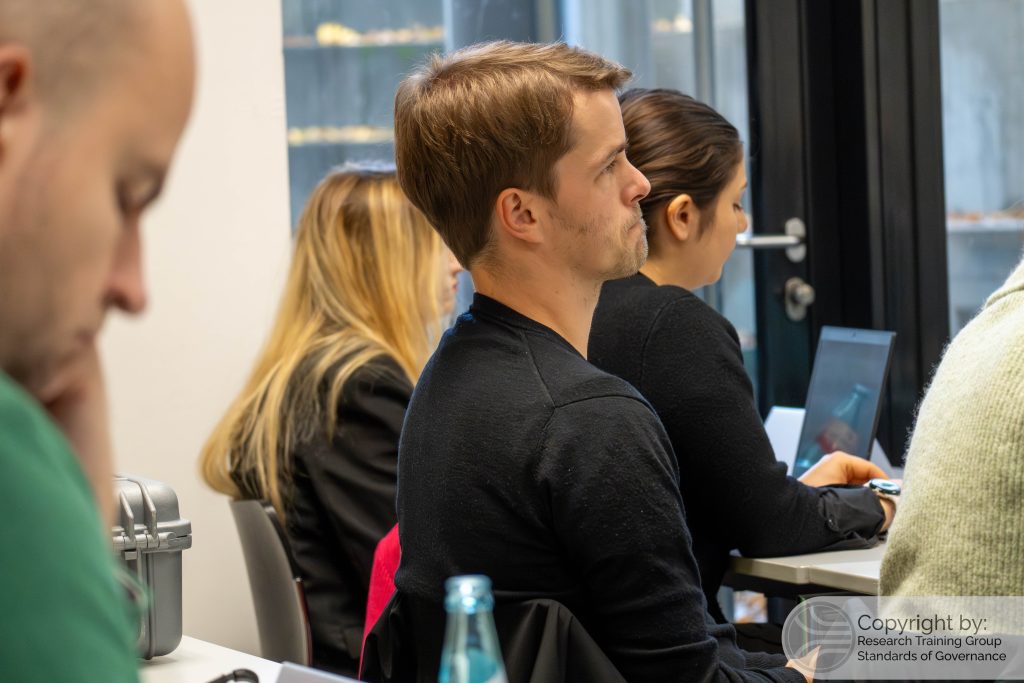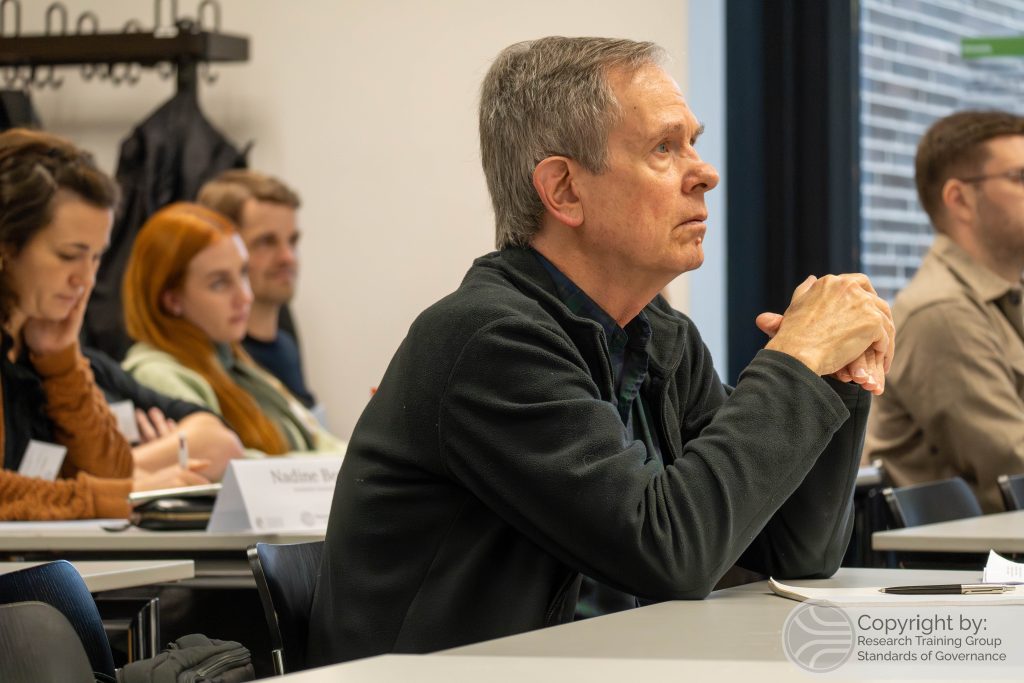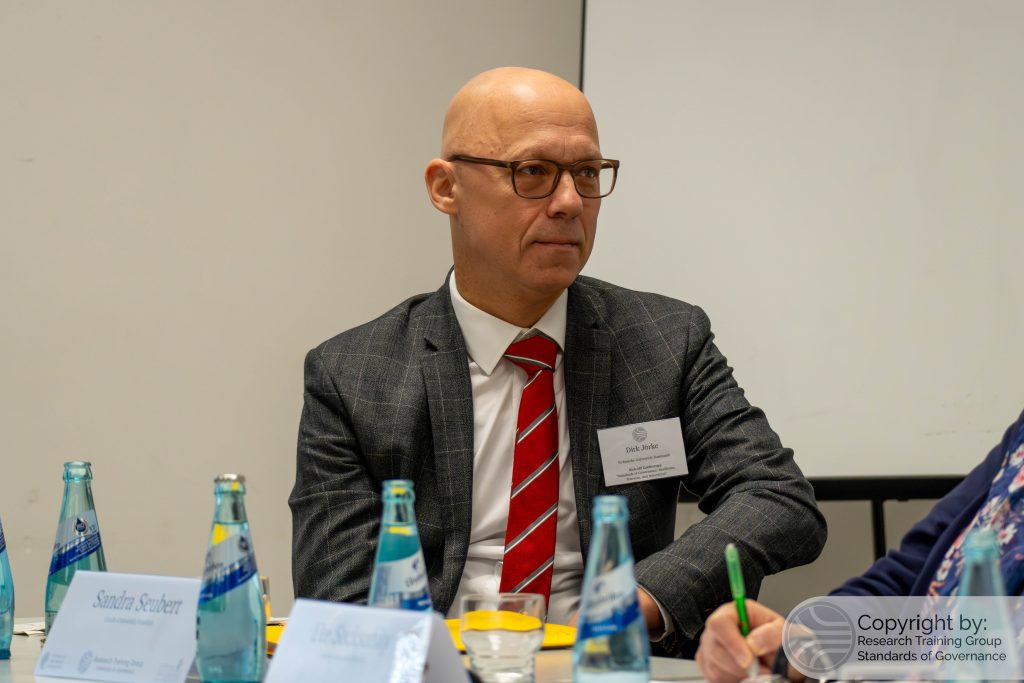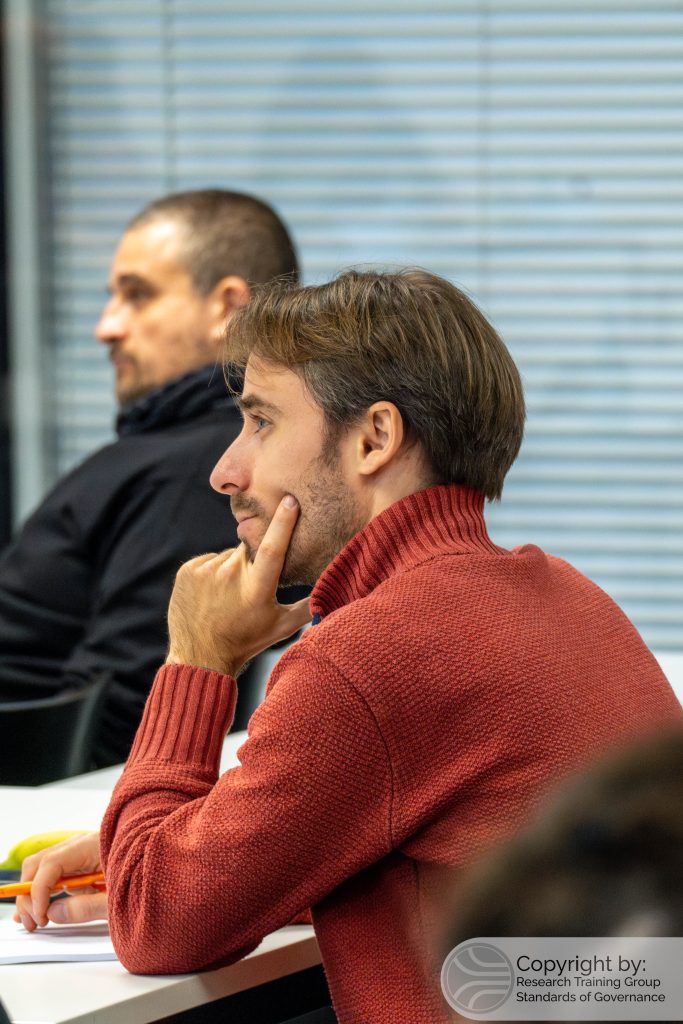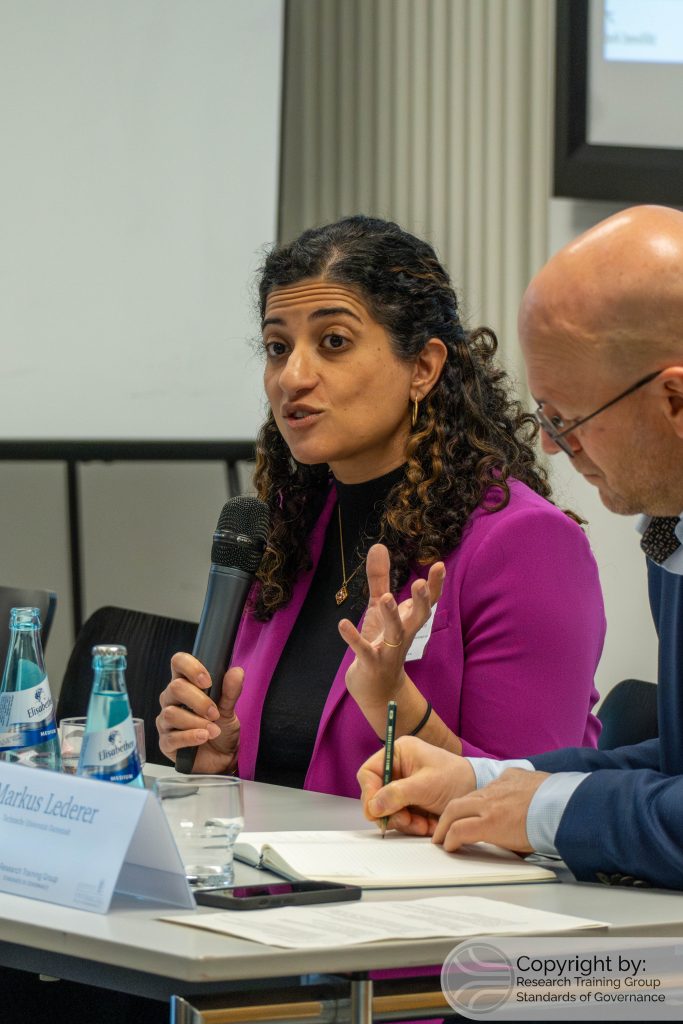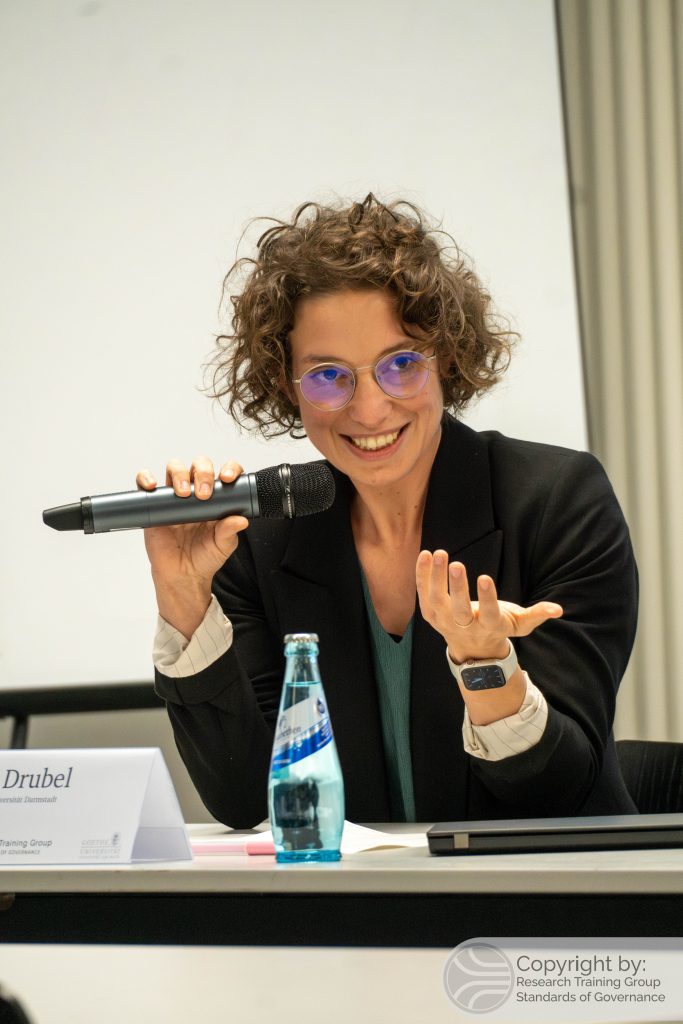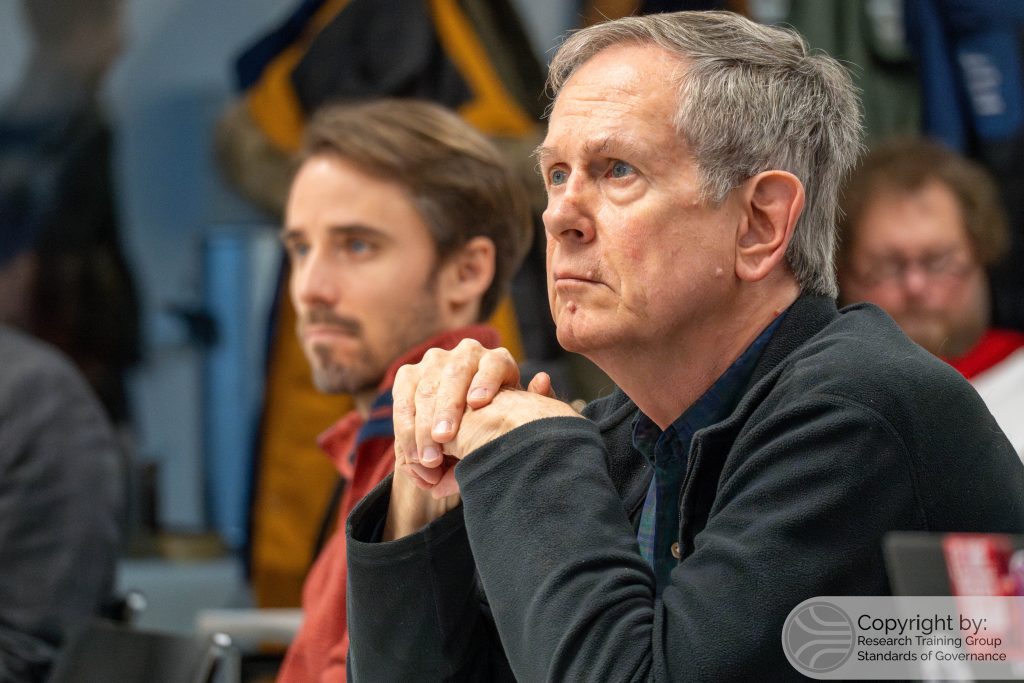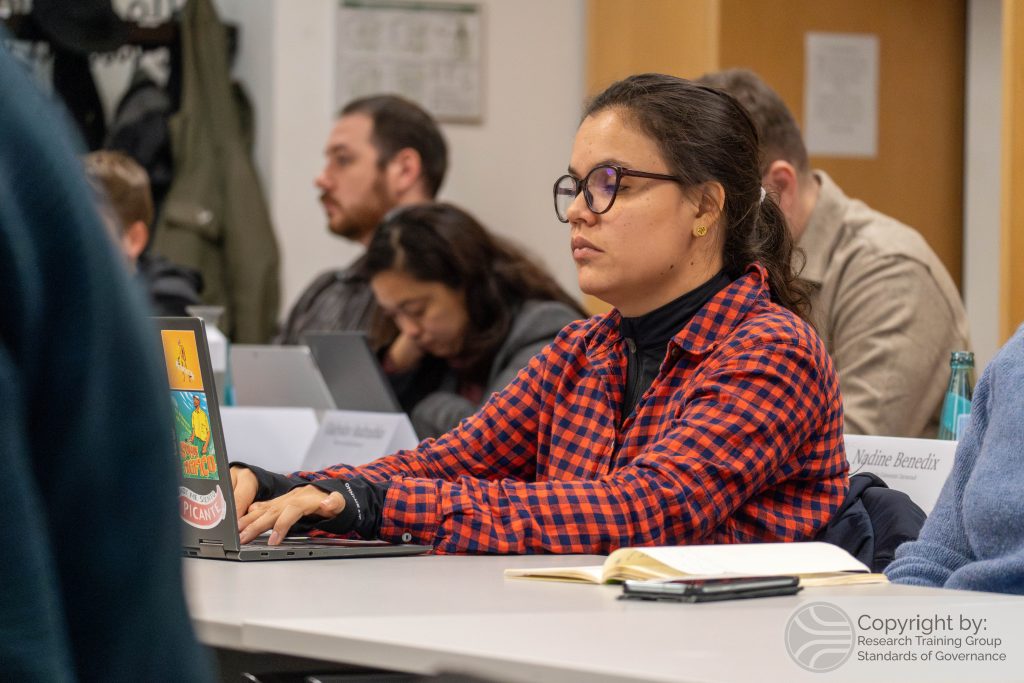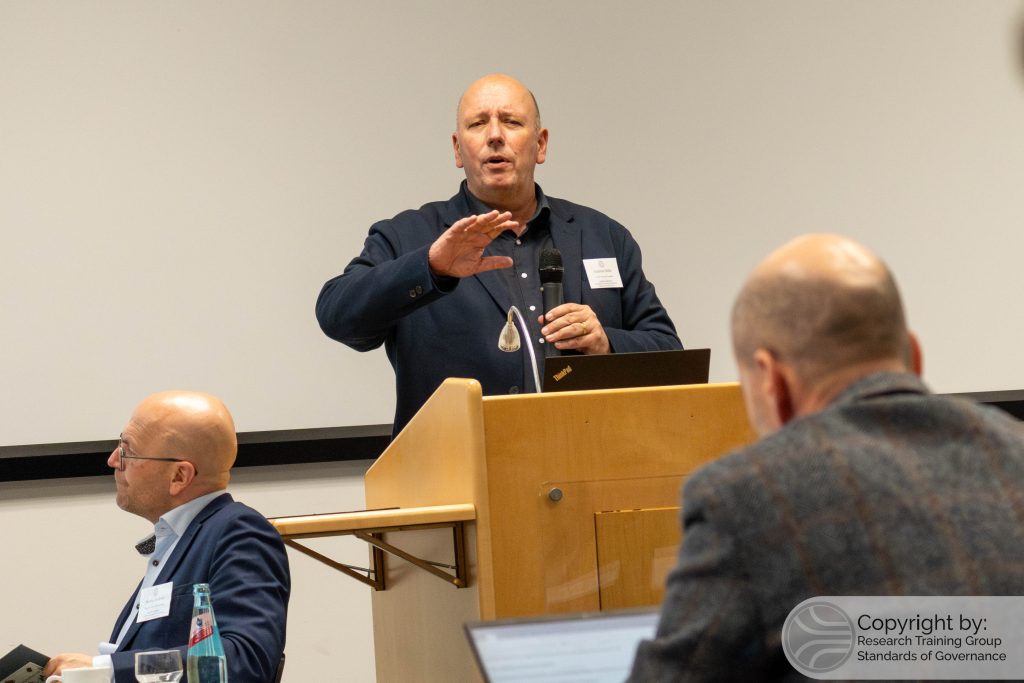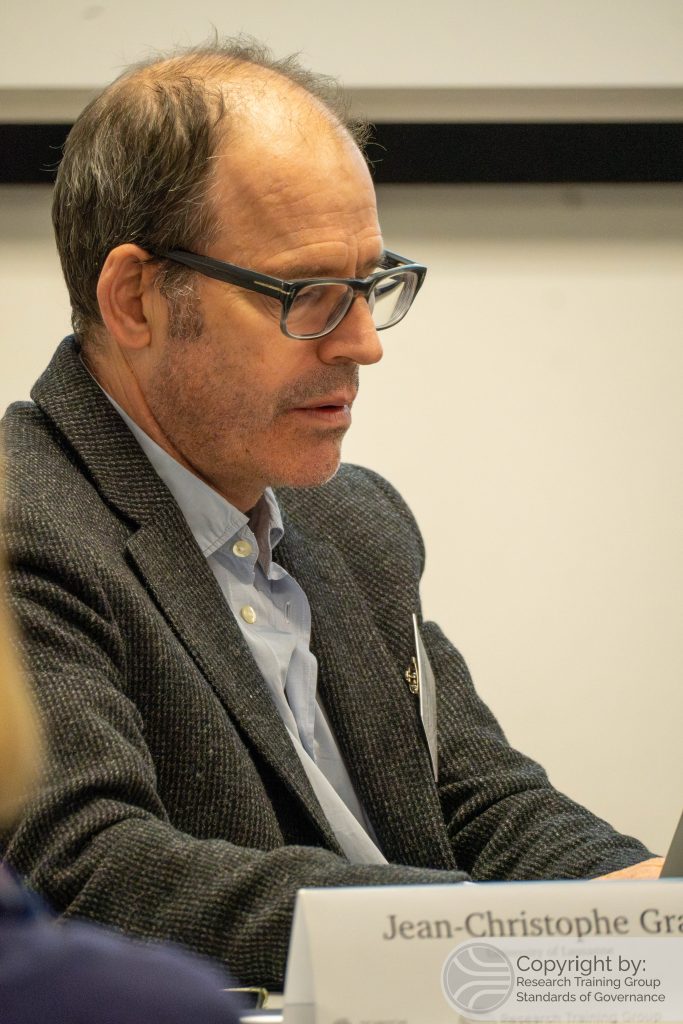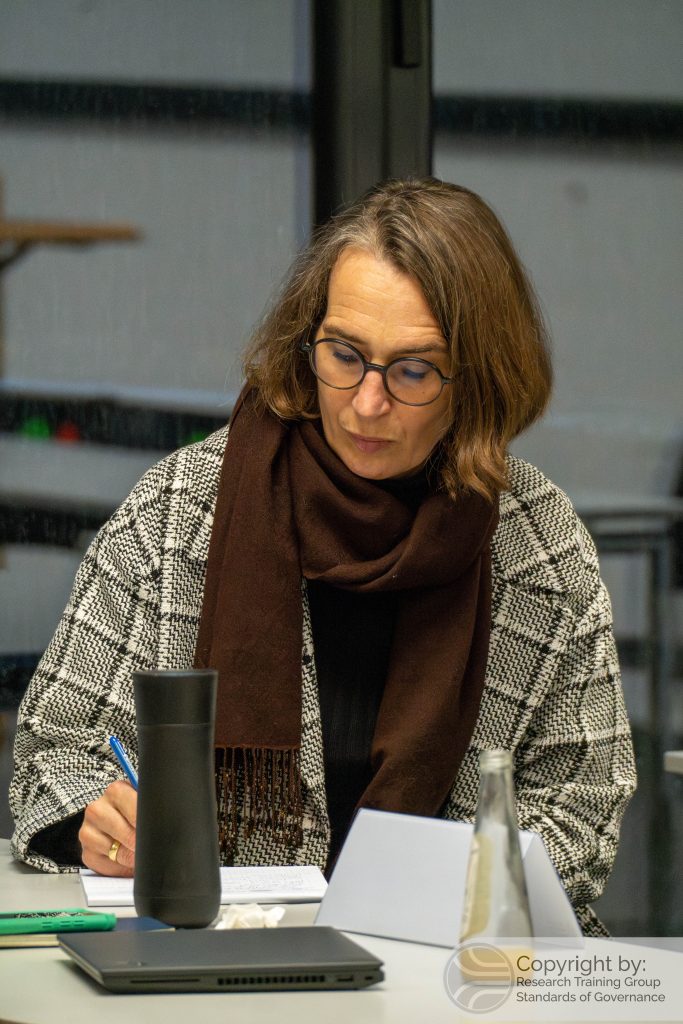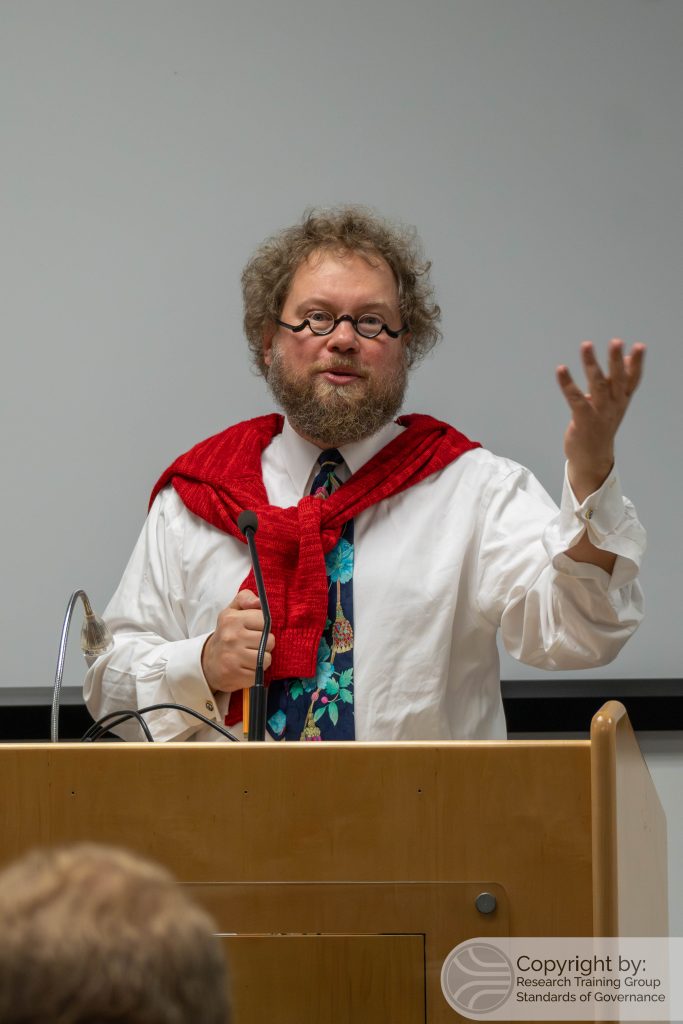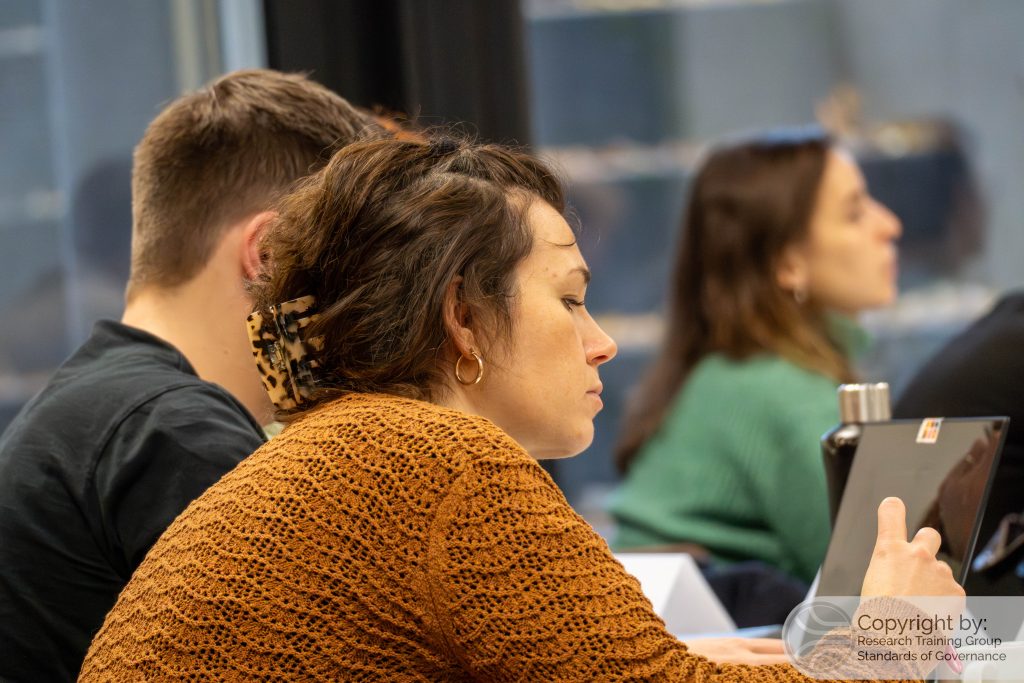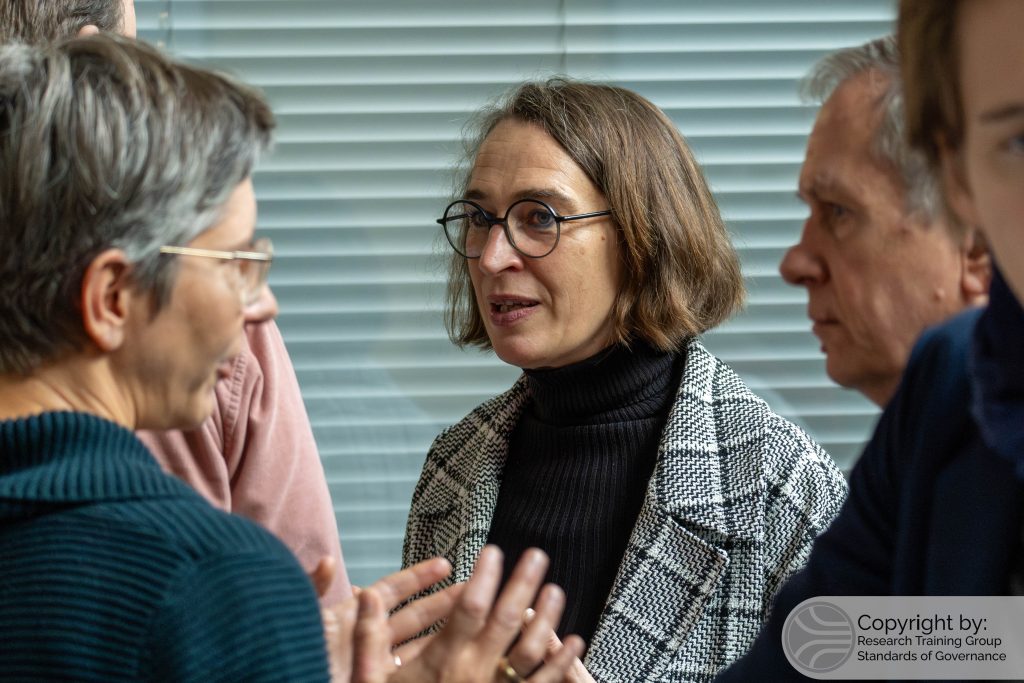The kick-off conference of the Research Training Group “Standards of Governance” took place in Darmstadt from 15 to 16 November. Under the headline “Standards of Governance: Resilience, Tensions, and Innovation”, international guests and the members of the Research Training Group focused on diverse types of standards of governance and their implications. The associated normative questions were discussed as well. Thematically, the conference covered a whole range of standards of governance in various empirical fields, e.g. citizenship and the rule of law in the EU to standards of governance in global financial infrastructures.
The conference began with a welcoming speech held by the speakers of the Research Training Group Jens Steffek and Sandra Seubert addressing nearly 40 researchers, and it took on full swing with its first panel. Chaired by Sandra Seubert (Goethe University), Dimitry Kochenov (CEU Budapest & Mercator Fellow of the Research Training Group), Kristin Surak (London School of Economics), Martijn van den Brink (Hertie School Berlin), Eva-Maria Schäfferle (Goethe University) and Manuela Boatca (Albert- Ludwigs-University Freiburg) analysed the practice of citizenship for sale and the extent to which standards can be formulated and implemented within this framework.
The second panel, chaired by Nathalie Behnke (TU Darmstadt), was titled “Standardisation versus innovation – challenges for the resilient state”. The participants Alexander Ebner (Goethe University), Robert Kaiser (University of Siegen) and Filippo Reale (Goethe University) shed light on the area of tension between standardisation and innovation in bureaucracy and what challenges and potential benefits for the resilience of the state are resulting from this tension. Moreover, the temporal dimension of resilience was one focus of the discussion. On the one hand, the panel investigated the role of standards at different points in time, beginning with the shock of the crisis and going over to the transformation of state structures. On the other hand, the discussion took stock of negative effects of accelerated innovation as a crisis response, e.g. when the gap between centre and periphery grows.
Jens Steffek focussed on the special research perspective of the Research Training Group, thereby analysing the self-reflexivity of governance and its democratic-theoretical evaluation. The tension between procedural standards of democratic participation and technocratic perspectives on the pre-political public interest were emphasised.
The highlight of the first day of the conference was the keynote speech by Duncan Snidal (University of Oxford) on the topic of “Power and Soft Standards in Global Governance”. Duncan Snidal drew a historical arc of ‘soft’ and ‘hard’ standards, going back to the Magna Carta ending with the current shift from ‘formal’ to ‘informal’ international organisations.
The second day of the conference was opened by the panel “Democracy, (EU) citizenship and rule of law standards in the EU”, chaired by Ute Sacksofsky (Goethe University). Dimitry Kochenov (CEU Budapest & Mercator Fellow of the Research Training Centre), Dirk Jörke (TU Darmstadt) and Sandra Seubert (Goethe University) dealt with questions of the legitimacy and effectiveness of standards in the EU and their relationship to the already present constitutional, democratic or civic standards.
The fourth panel, chaired by Markus Lederer (TU Darmstadt), there were Aarti Gupta (Wageningen University & Mercator Fellow of the Research Training Centre), Maryam Deloffre (George Washington University & Mercator Fellow of the Research Training Centre) and Julia Drubel (TU Darmstadt). They analysed the tension between global standards and their local implementation, while focusing on states, civil society and companies as actors active in the policy fields of climate protection, of humanitarian aid and of resource extractivism. In addition to questions of conceptual distinction, the panel particularly criticised the translation of accountability into “audibility” when the focus is placed exclusively on the output of governance.
The last panel, chaired by Jean-Christophe Graz (University of Lausanne) focussed on standards in the global financial infrastructure. Carola Westermeier (Justus Liebig University Giessen) and Andreas Nölke (Goethe University) thematised the tensions between emerging economies and Western states in the negotiation of global financial infrastructures. Among other results, the panel also impressively showed how political issues can be concealed under technical standards.
The conference concluded with a conceptual discussion that summarised the research of the Research Training Group and the individual doctoral projects of the young researchers with the topics discussed in the panels. An overview of the complete English-language programme of the kick-off conference can be found here.
